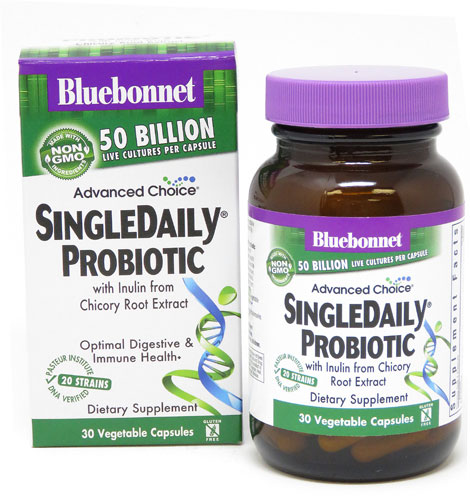Gut health has gone from a private conversation to be had with your gastroenterologist to one of the hottest buzzwords in wellness. A slew of new research indicates why. Your gut contains over 40 trillion bacteria that are constantly at work at powering your entire body, and it isn’t just digestion that they’re managing: Your microbial community impacts everything from the robustness of your brain to the circumference of your waist. Indeed, scientists are now calling the human gut our “second brain”—and giving “gut feeling” a whole new dimension.
This is due to the fact that your gut hosts your enteric nervous system. Distinct from your central nervous system—which collects information, coordinates activity throughout your body, and controls movements, emotions, desires, breathing and more—your enteric nervous system directs your gastrointestinal tract.
While the true complexity of this “second brain” is only now being revealed, research has shown that your gut plays a vital role in your ability to handle stress and your capacity to feel hungry or sated. It also has a role in the amount of fat you store, the level of glucose in your blood and even your mental wellbeing.
When your gut isn’t well—when it’s been compromised by toxins, a poor diet, medications or other factors—you may be placed at risk for a litany of complications, including leaky gut syndrome, SIBO, fatigue, anxiety and more.
With this mind, the health of your gut should be prioritized right up there with the health of your heart—especially as researchers are consistently demonstrating that gut health is a biomarker for longevity. But how do you achieve it? Here are eight fresh, savvy ways to make your tummy—and whole self—hale and hearty:
1. Eat potatoes—but ensure they’re cold
Many swore off potatoes in the ‘90s when diets such as The Zone began slandering carbs. And while carbs should be moderated for an ideal weight and steady blood sugar levels, cold potatoes should be added to your daily, well, grind. When they’re scrubbed, cooked and cooled, they’re deemed one of the best resistant starches around—that is, a “prebiotic” food that operates as an indigestible carb and fuels the good bacteria in your gut. (Resistant starches have also been linked to a reduced risk in diabetes and weight loss.)
2. Don’t take antibiotics unless you must
Most of us are well-aware that antibiotics can do a number on our gut health, but research demonstrates just how much damage it does. A study out of Stanford University shows that antibiotic use results in an acute and rapid loss of bacteria diversity in the gut and a complete shift in the composition of its flora. Translation? Everything from your digestion to your skin may be affected. There are times when antibiotics are essential—for strep throat, for example—but in general physicians prescribe antibiotics for situations, like a cold or the flu, that kill bacteria but not the virus, rendering them more harmful than helpful.
3. Swear off artificial sweeteners
Widely used as a replacement for sugar, artificial sweeteners can be found in everything from diet soda to dairy products. You may want to cut down on calories, but consuming foods that contain aspartame and other sugar substitutes can have a profound and grave influence on your gut health—and produce the opposite effect you’re after. As Scientific American points out, saccharin and other alternatives “enhance the populations of gut bacteria that are more efficient at pulling energy from our food and turning that energy into fat. In other words, artificial sweeteners may favor the growth of bacteria that make more calories available to us, calories that can then find their way to our hips, thighs and midriffs.” These changes in gut bacteria can not only sway how you feel in the present but also put you at risk for obesity in the future.
4. Bone up on probiotics
Probiotics are synonymous with gut function for good cause: Whether consumed in food or supplements, they can increase the ratio of good bacteria to bad bacteria, thereby creating a healthier, more balanced gut ecosystem (and the wellness benefits that come with it). Fermented foods such as kefir, sauerkraut, kimchi and miso are terrific options, but if those sound too exotic or unappealing to you, go for good, old-fashioned yogurt (just be sure the yogurt contains live and active cultures). Interested in investing in a probiotic supplement? Read this advice on how to choose a probiotic supplement for detailed guidance.
5. Go outside
Sound too simple to be true? Think again. Being exposed to a broad range of environments may bolster the internal environment of your gut. Getting outside on a regular basis may enrich the diversity of your microbial diversity while also boosting your immune system—and helping you stay at or reach your optimal weight.
6. Up your fiber intake
Protein? Check. Healthy fats? Check. Complex carbs? Check again. But, really, how many of us pay attention to how much fiber we’re getting? Few, if any—which is a shame, considering that fiber is the “working horse” of your body, invigorating the good bacteria in your gut while also helping you stay full longer. Fill your plate with broccoli, pears, blackberries, avocados, bananas, artichokes and beets.
7. Prioritize healthy dental habits
Daily flossing, frequent dental cleanings, smart brushing—and gut health? Yes. There isn’t a single part of your body that operates individually, meaning that the health of your teeth has a direct impact on your whole organism, including your gut. Several studies, including one at Cornell University, demonstrated that deleterious bacteria that grows in your mouth (from a lack of proper oral hygiene) can make their way into your gut and alter its constitution.
8. Test for food allergies
Food allergies can wreak havoc on your gut health by changing and irritating your intestinal wall and causing significant digestive problems. You can ask your primary care or naturopathic physician for a food allergy test or you can conduct an elimination diet test on your own—one in which you abolish foods that are common allergens, such as gluten, for a week, then separately “challenge” each food by introducing them back into your diet and monitoring your reaction. Bloating, pain, heartburn, constipation, diarrhea—all are signs that your gut health has been disrupted and the foods that are causing it should be excluded. Knowing which foods to eat is a form of empowerment, allowing you to control the trajectory of your gut—and overall—health.




